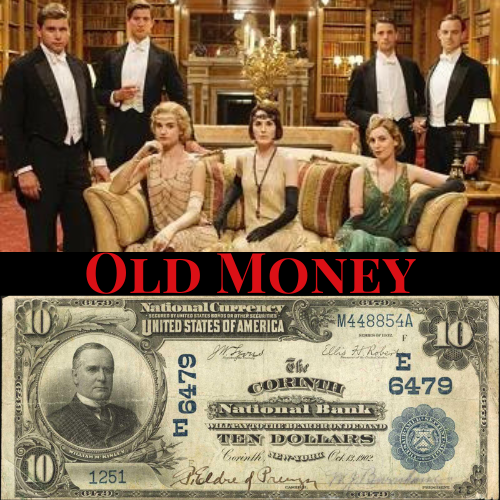In the grand tapestry of economic and social dynamics, “old money” occupies a unique and enduring niche. Often whispered about in exclusive circles or portrayed with intrigue in literature and media, old money carries an air of mystique and prestige. But what exactly is old money, and why should it matter to you? This post aims to unravel the complexities of old money and explore its potential impact on your life.
Defining “Old Money”
“Old money” refers to wealth that has been in a family for several generations, typically earned long ago and passed down through inheritance. This contrasts with “new money,” which describes individuals or families that have recently acquired significant wealth, often through entrepreneurship, innovation, or entertainment. The defining feature of old money isn’t just wealth but longevity and the tradition of inheritance that sustains it across generations.
Characteristics of Old Money
- Stability in Wealth: Old money is characterized by its resilience. Typically safeguarded through prudent financial management, diverse investments, and conservative spending habits, old money survives economic downturns more effectively than newly acquired fortunes.
- Cultural Caché and Influence: Families with old money often hold positions of influence within society. Their contributions to cultural, educational, and philanthropic endeavors enhance their standing and provide a legacy beyond financial wealth.
- Discretion and Modesty: While new money may attract attention through ostentatious spending, old money is often associated with a more understated lifestyle. This discretion is not just about modesty but also reflects a strategy for preserving wealth.
- Traditions and Values: Old money typically comes with family traditions and values. These families might emphasize education, public service, and a sense of noblesse oblige—a belief that the responsibility to give back to society comes with wealth.
The Societal Impact of Old Money
Old money plays a significant role in shaping social structures. The stable presence of old-money families in a community can offer both advantages and challenges:
- Patronage and Philanthropy: Many families with old money contribute to society by supporting the arts, education, and charitable causes. This can result in significant advancements in culture and community welfare.
- Networking and Social Capital: Old-money families often have broad and influential networks, providing opportunities for others within their circle. This can foster relationships that benefit careers and personal ventures.
- Economic Inequality: The existence of old money can contribute to economic divides. Families with longstanding wealth often have access to better education, healthcare, and opportunities, perpetuating a cycle that can be difficult for others to break into.
Why Old Money Matters to You
You may wonder why the existence of old money should matter to you, especially if it seems distant from your circumstances. Here are a few reasons why it might be more relevant than you think:
- Economic Understanding: Knowing about old money can deepen your understanding of economic systems, including the importance of financial planning and investment and the long-term impact of wealth distribution.
- Cultural Appreciation: Familiarity with old money circles often brings a greater appreciation for historical contexts, as these families have often played roles in significant cultural developments.
- Networking Opportunities: Recognizing the circles and dynamics of old money can help you identify opportunities for connection and collaboration, whether for business, philanthropy, or personal growth.
- Social Awareness and Advocacy: Understanding the role of old money in perpetuating inequality can inspire activism and advocacy for more equitably distributed opportunities.
Conclusion
With its blend of wealth, tradition, and influence, old money remains an integral part of societal dynamics. Whether through its role in cultural patronage, economic stability, or social inequality, old money touches many facets of life. Understanding it allows you to gain insights into economic trends, develop cultural appreciation, and identify personal opportunities. Furthermore, increased awareness can drive meaningful discussions on collectively fostering a more equitable society, ensuring that financial stability and social influence do not remain the exclusive preserve of a select few but become accessible to a broader community.

